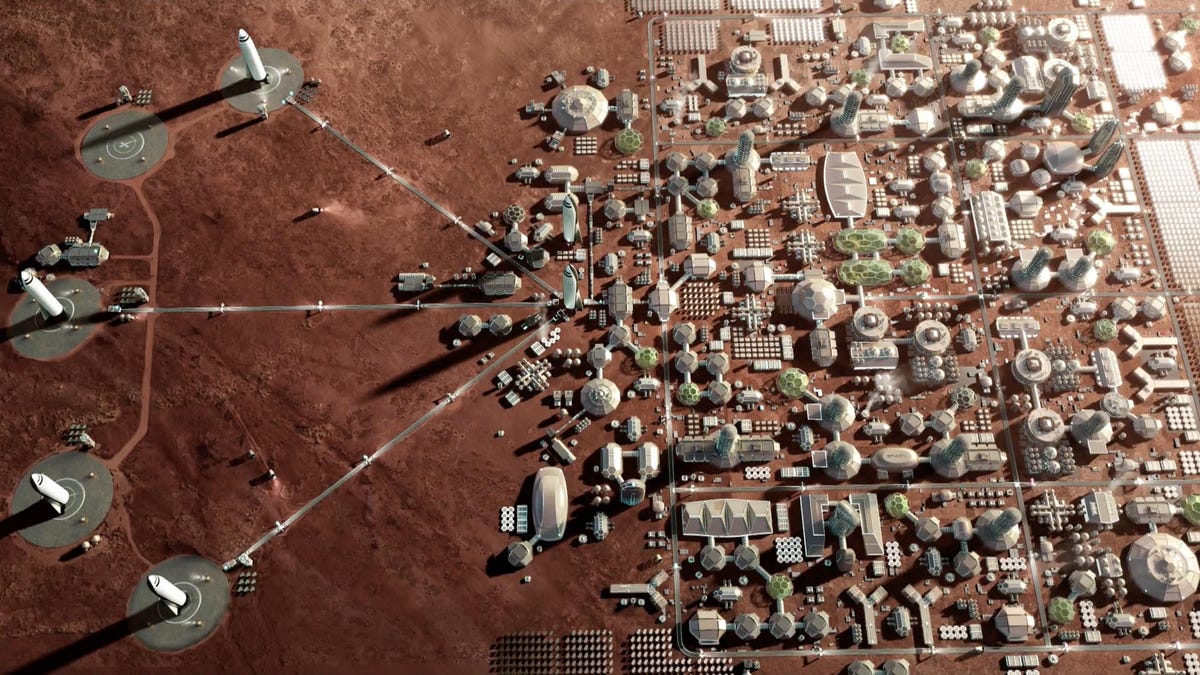SpaceX exec says Elon Musk's Boring Company could dig out homes on Mars
Maybe it'd be easier for Matt Damon to grow potatoes there.

Elon Musk's Martian city might be a little more underground than this.
It's good to run multiple companies that can share resources when you have audacious goals like Elon Musk's vision of colonizing Mars.
Musk's side project, tunnel-digging startup the Boring Company, could one day be used to create much of the living space for that Martian colony, according to SpaceX President and COO Gwynne Shotwell.
"I think the Boring Company could be the way that we house people on Mars. We'll have to dig tunnels for folks," Shotwell told CNBC.
This makes sense because a key challenge to living on Mars (and there are many) will be the intense levels of radiation the planet receives from space due to its lack of a strong magnetic field, which is what protects us from those destructive particles here on Earth.
To avoid exposure to lethal amounts of radiation, colonists would need to be shielded behind a protective layer and several feet of Martian rock might be able to do the job.
So all those pretty renderings we've seen of a Mars habitat inside a clear bubble on the red planet's surface might not turn out to be practical, especially if the Boring Company can make it easier to dig out a protected living space instead.
The Boring Company has already been busy digging under Los Angeles, where it has ambitions to create a new kind of underground high-speed transit system.
Shotwell added that there's plenty of sharing going on within Musk's empire, from SpaceX borrowing Tesla's battery technology to the possibility that a planned SpaceX satellite broadband service could help connect Tesla vehicles on the road.
The executive also said she doesn't want to stop with Mars. She sees it as a stepping stone to entering a new universe of aliens and other concepts right out of science fiction.
"Like what you see in the TV shows: Firefly, Battlestar Galactica, Star Wars. I want to meet other people, or whatever they call themselves. I think that really should be the ultimate goal."
Crowd Control: A crowdsourced science fiction novel written by CNET readers.
Solving for XX: The tech industry seeks to overcome outdated ideas about "women in tech."

